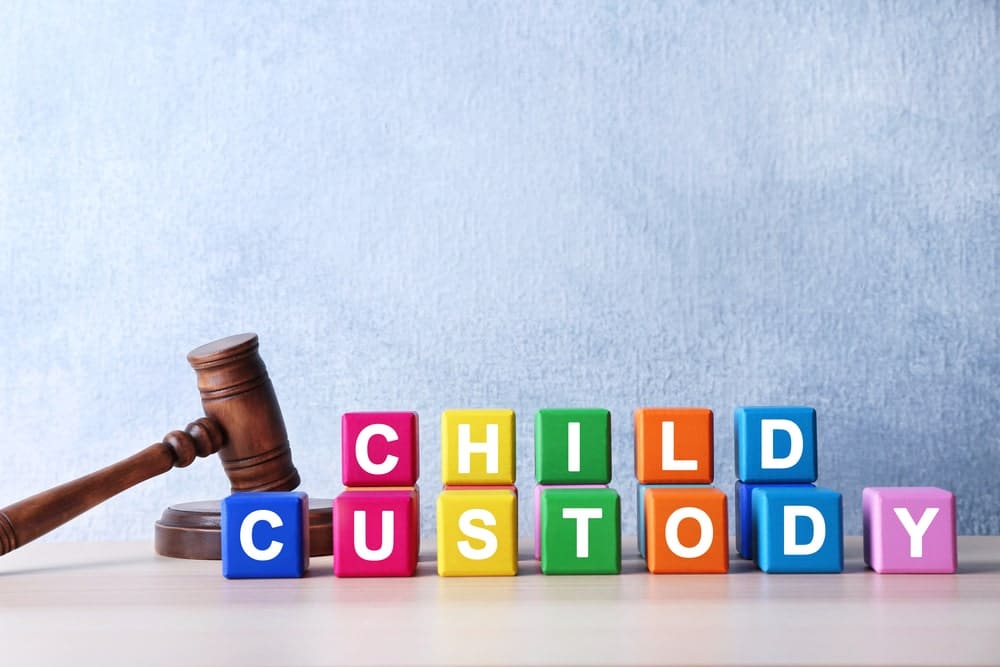
The term “child custody” has been replaced with “decision-making responsibilities” under the Divorce Act. This focuses on who makes key decisions about a child’s education, healthcare, religion, and welfare, while parenting time covers time spent with the child.
When you are going through an emotional divorce and trying to work out what’s best for your children, it can be a challenge to think clearly and make the important decisions that will affect the rest of your lives. It helps to be able to consult with a child custody lawyer who is familiar with the family law system here in Alberta.
The team at Jennings Family Law can help you formulate a parenting plan that is agreeable to both parents and, most importantly, in the best interests of your child(ren).
In Alberta, “child custody” has evolved into two distinct concepts: decision-making responsibilities and parenting time. These terms better reflect the roles and responsibilities of parents after separation or divorce, focusing on the child’s best interests.
Child custody agreements outline where a child will live and who has the authority to make key decisions about their welfare, including education, healthcare, and general well-being. These arrangements generally fall into three categories:
One parent has full decision-making authority and is primarily responsible for the child’s care. The other parent may have scheduled parenting time but no say in major decisions about the child’s upbringing.
Both parents share equal decision-making responsibilities and collaborate on major aspects of the child’s welfare. Parenting time is often divided more equally in these arrangements.
While one parent may handle most of the caregiving and decision-making, the other parent retains some involvement in key decisions and parenting responsibilities.
Each custody arrangement is tailored to meet the child’s best interests, often requiring negotiation or legal assistance to ensure clarity and fairness.
Family law cases in Alberta are held in either the Court of Queen’s Bench or the Provincial Court.
Alberta law follows family law around Canada and places the best interests of your child(ren) at the heart of all decisions regarding their future.
While divorcing couples must follow the provisions of the federal Divorce Act, the Alberta Family Law Act, which as enacted in 2005, sets out specific guidelines for parenting issues.
In the context of parents separating, the act makes provisions for the children when matters such as guardianship, child support, and parental contact arise.
These details can help you arrange a legally binding parenting plan. However, they are complex matters that require a clear understanding of the act in order to meet the provisions it contains.
It is inadvisable to draw up your own parenting plan or custody agreement without the assistance of a skilled lawyer. Your agreement may not comply with regulations, in which case it will not be accepted by the Alberta Court and this will delay decisions and create complications.
The assistance of an experienced child custody lawyer will result in a parenting plan that holds up in court.

In Alberta, this means following the criteria laid out in the Alberta Family Law Act, which the Court will assess before approving your parenting plan.
The court will assess the following factors:
In Alberta, options of “sole custody” (now known as “sole decision-making responsibilities”) and “joint custody” exist.
The Court prefers joint custody, if possible, as this means that both parents will be involved in making the key decisions for the upbringing of their child.
In certain cases, joint custody might be seen as risky for the child as one parent is “unfit” to parent. Sole custody may be preferable as an unavoidable consequence of circumstances.
However, these decisions are never taken lightly. If you are proposing sole custody, it may involve a long legal battle in the Alberta courts. Full custody will normally only be awarded if it can be shown that:
Sometimes, the decision is made for sole custody based on the relationship of one of the parents with a new live-in partner who is deemed unfit to parent.
There are a few basic areas that any Alberta parenting plan should cover. Most important of these are:
If you parent a child in Alberta, you are almost always granted automatic guardianship of your child, whether you’re married or not.
You automatically receive guardianship (unless overridden by the Alberta court) if:
There are some other noteworthy provisions under Alberta law that affect guardianship. Some of these include:
The Alberta court’s preference is for parents to work out mutually agreeable custody agreements – even if this means attending child custody mediation sessions.
If this proves impossible, you can petition the court to create your parenting plan or to make decisions on key elements within it.
However, bear in mind that the Court decisions may not be in your favour as they will only consider the best interests of your child without really knowing your child or the true nature of his or her relationship with you.
As a general rule, it is best for you and your spouse to work on a parenting plan with your lawyers or a mediator present and to reach mutually beneficial agreements that way.